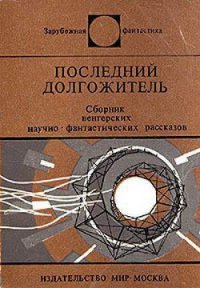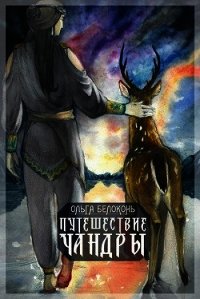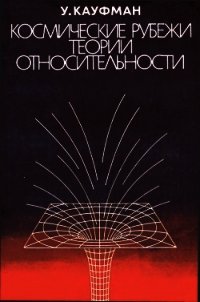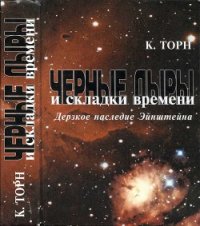Империя звезд, или Белые карлики и черные дыры - Миллер Артур (книги хорошем качестве бесплатно без регистрации txt) 📗
Excerpt from the Meeting of the Royal Astronomical Society, 14 November 1930. The Observatory, 1930, 53, 330-4.
The analysis of stellar structure. Monthly Notices of the Royal Astronomical Society, 1930, 91, 4-55.
Excerpt from the Meeting of the Royal Astronomical Society, 9 January 1931. The Observatory, 1931, 54, 34.
Excerpt from the Meeting of the Royal Astronomical Society, 13 March 1931, 99-101; Excerpt from the Meeting of the Royal Astronomical Society, 10 April 1931, 126–129; Excerpt from the Meeting of the Royal Astronomical Society, 8 May 1931, 154–155; Letter to the Editors, 243–251. The Observatory, 1931, 54.
The theory of stellar structure II (Energy-generation). Zeitschrift fur Astrophysik, 1932, 5, 337–347.
Excerpt from the Meeting of the Royal Astronomical Society, 11 January 1935. The Observatory, 1935, 58, 52.
Relativity, Gravitation and World-Structure (Oxford, Oxford University Press, 1935).
Letter to the Editors. The Observatory, 1935, 58, 174–176.
The white dwarf stars. The Halley Lecture, delivered 19 May 1932, in Five Halley Lectures (Oxford, Oxford University Press, 1936). 3-32.
Ralph Howard Fowler. Obituary Notices of Fellows of The Royal Society, 1945, 5, 61–78.
Ralph H. Fowler. Monthly Notices of the Royal Astronomical Society, 1945, 105, 80–87.
Sir James Jeans. Obituary Notices of Fellows of the Royal Society, 1947, 5, 573–589.
MISNER CHARLES WITH KIP S. Thorne and John A. Wheeler. Gravitation (New York, Freeman, 1970).
MOORE WALTER. Schrödinger: Life and Thought (Cambridge, Cambridge University Press, 1971).
NASA. Apollo 15 Preliminary Science Report, Special Publication SP-289 (Washington, DC: Science and Technical Information Office, 1972).
OPPENHEIMER J. ROBERT AND ROBERT SERBER. On the stability of stellar neutron cores. Physical Review, 1938, 54.
AND HARLAND SNYDER. On continued gravitational contraction. Physical Review, 1939, 56, 455–459.
AND GEORG M. VOLKOFF. On massive neutron cores. Physical Review, 1939, 55, 374–381.
OSTERBROCK DONALD E. Walter Baade, observational astrophysicist, (2): Mount Wilson 1931–1937. Journal of the History of Astronomy, 1996, 27, 301–348.
Yerkes Observatory, 1892–1950: The Birth, Near Death, and Resurrection of Scientific Research Institution (Chicago, University of Chicago Press. 1997).
Chandra and his students at Yerkes Observatory. In: G. Srinivasan (ed.). From White Dwarfs to Black Holes: The Legacy of S. Chandrasekhar (Chicago: University of Chicago Press, 1999), 199–237.
Who really coined the word supernova/Who first predicted neutron stars? Bulletin of the American Astronomical Society, 2001, 33, 1330–1331.
PAIS ABRAHAM. Inward Bound: On Matter and Forces in the Physical World (Oxford, Oxford University Press, 1986).
The Genius of Science: A portrait gallery of twentieth-century physicists (Oxford: Oxford University Press, 2000).
PAULI WOLFGANG. The influence of archetypal ideas on the scientific theories of Kepler. In: C. G. Jung and W. Pauli. The Interpretation of Nature and the Psyche (New York, Pantheon, 1955).
Wissenschaftlicher Briefwechsel mit Bohr, Einstein, Heisenberg, U. A. I: 1919–1929 (eds., A. V. Hermann, K.v.Meyenn, V. F. Weiskopf). (Berlin, Springer, 1979).
PAYNE-GAPOSCHKIN C. The Relative Abundances of the Elements. In: Stellar Atmospheres. Harvard Observatory Monograph, №.1 (Cambridge, MA: Harvard University Press, 1925).
Interview by Owen Gingerich, 5 March 1968, AIP.
AND KATHERINE HARAMUNDANIS. Introduction to Astronomy (Englewood Cliffs, NJ, Prentice-Hall, 1970).
PEIERLS RUDOLF. Note on the derivation of the equation of state for a degenerate relativistic gas. Monthly Notices of the Royal Astronomical Society, 1935–1936, 96, 780–784.
PELLAM, J.R. Lev Davidovich Landau. In: I. M. Khalatnikov. Landau: The Physicist and the Man (New York: Pergamon Press, 1989), 198–204.
PENROSE ROGER. Gravitational collapse and space-time singularities. Physical Review Letters, 1965,14,57–59.
Gravitational Collapse: the role of general relativity. Revista del Nuovo Cimento, Numero speciale, 1969, 1, 252–276.
PLASKETT HENRY H. Edward Arthur Milne. Monthly Notices of the Royal Astronomical Society, 1951, 111, 170–172.
PLUMMER H. C. Arthur Stanley Eddington. Obituary Notices of the Royal Society, 1948, 5, 113–125.
RAMAN C. V. The molecular scattering of light. Lecture delivered 11 December 1930. In: Nobel Lectures in Physics, 1922–1941 (New York, Elsevier, 1965), 267–275.
RAMASESHAN S. S. Chandrasekhar and C. V. Raman — some letters. Current Science, 1996, 70, 104–107.
Chandrasekhar — some reminiscences. In: K. C. Wali (ed.). S. Chandrasekhar: The Man Behind the Legend (London, Imperial College Press, 1997), 101–102.
REES MARTIN. Reminiscing about Chandra’s research. In: K.C. Wali (ed.). S. Chandrasekhar: The Man Behind the Legend (London. Imperial College Press, 1997), 183–186.
Astrophysical evidence for black holes. In: R.W. Wald, (ed.). Black Holes and Relativistic Stars (Chicago, University of Chicago Press, 1998), 79-101.
RHODES RICHARD. The Making of the Atomic Bomb (New York, Simon & Schuster, 1986).
Dark Sun: The Making of the Hydrogen Bomb (New York, Simon&Schuster, 1995).
ROSENFELD LEON. Nuclear physics, past and future. In: M. Neve de Mevergnies, P. Van Assche and J. Vervier (eds.). Nuclear Structure Study with Neutrons (Amsterdam: North Holland, 1996).
Niels Bohr in the thirties. In: S. Rozenthal (ed.), Niels Bohr: His Life and Work as Seen by His Friends and Colleagues (New York, Wiley, 1967), 114–136.
RÜGER ALEXANDER. Atomism from cosmology: Erwin Schrodinger’s work on wave mechanics and space-time structure. Historical Studies in the Physical Sciences, 1988, 18, 377–401.
RÜSSELL HENRY NORRIS. Giant and dwarf stars. The Observatory, 1913, 36, 325.
Relations Between Spectra and Other Characteristics of Stars. Popular Astronomy, 1914, 22, 275–294.
The Problem of stellar evolution’, Nature, 1925, 116, 209–212. Address. In: Conferences du College de France, Colloque International d’Astrophysique, 17–23 juillet 1939 (Paris: Hermann, 1941), 1–6.
Arthur Stanley Eddington, 1882–1944. Astrophysical Journal, 1945, 101, 133–135.
SAHA MEGHNAD. Ionisation in the solar chromosphere. Philosophical Magazine, 1920, 40, 479–488.
SAKHAROV ANDREI. Memoirs (New York, Knopf, 1990).
SALPETER EDWIN E. Energy and pressure of a zero-temperature plasma. Astrophysical Journal, 1961, 134, 669–682.
Neutron stars before 1967 and my debt to Chandra. In: G. Srinivasan (ed.). From White Dwarfs to Black Holes: The Legacy of S. Chandrasekhar (Chicago, University of Chicago Press, 1999), 27–29.
SANDAGE ALLAN R. and Martin Schwarzschild. Inhomogeneous Stellar Models II: Models with Exhausted Cores in Gravitational Contraction. Astrophysical Journal, 1952, 116, 463–476.
SCHMIDT MAARTEN. A star-like object with large red-shift. Nature, 1963, 197, 1040.
SCHÖDEL R., et.al. A star in a 15.2-year orbit around the supermassive black hole at the centre of the Milky Way. Nature, 2002, 419, 694–696.
SCOTT DAVID R., Alexei Leonov, Christine Toomey. Two Sides of the Moon: Our Story of the Cold War Space Race (New York, Simon & Schuster, 2004).
SERBER ROBERT. The Los Alamos Primer (Berkeley, CA, University of California Press, 1992).
SINGH AMAR KUMAN. Indian Students in Britain: A Survey of Their Adjustment and Attitudes (London, Asia Publishing House, 1963).
SINGH SIMON. Big Bang: The most important scientific discovery of all time and why you need to know about it (London, Fourth Estate, 2004).
SLATER GILBERT. Southern India: Its Political & Economic Problems (London, George Allen & Unwin, 1936).
SMART W.G.M. Excerpt from the Meeting of the Royal Astronomical Society, 9 January 1931. The Observatory, 1931, 54, 38.




